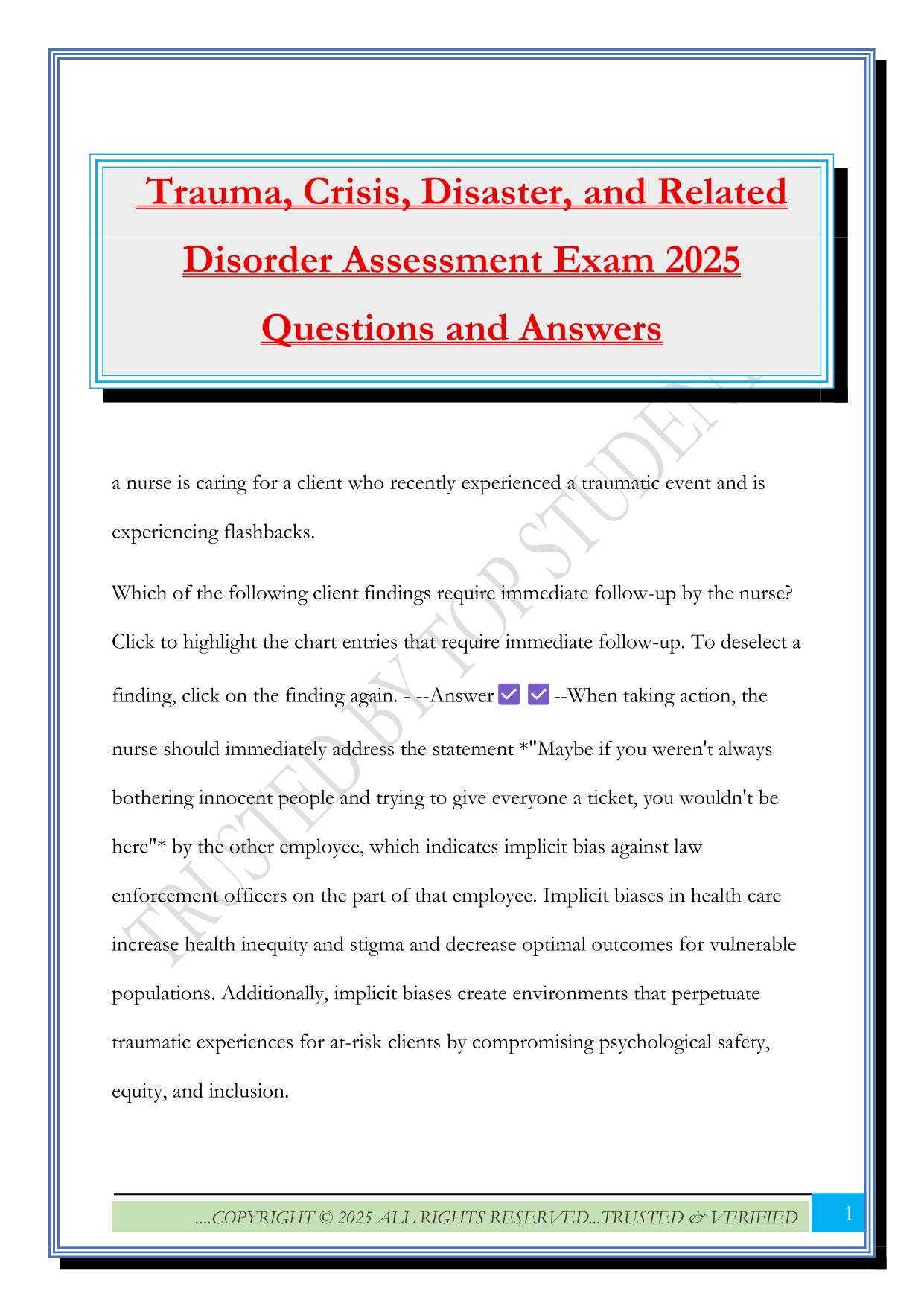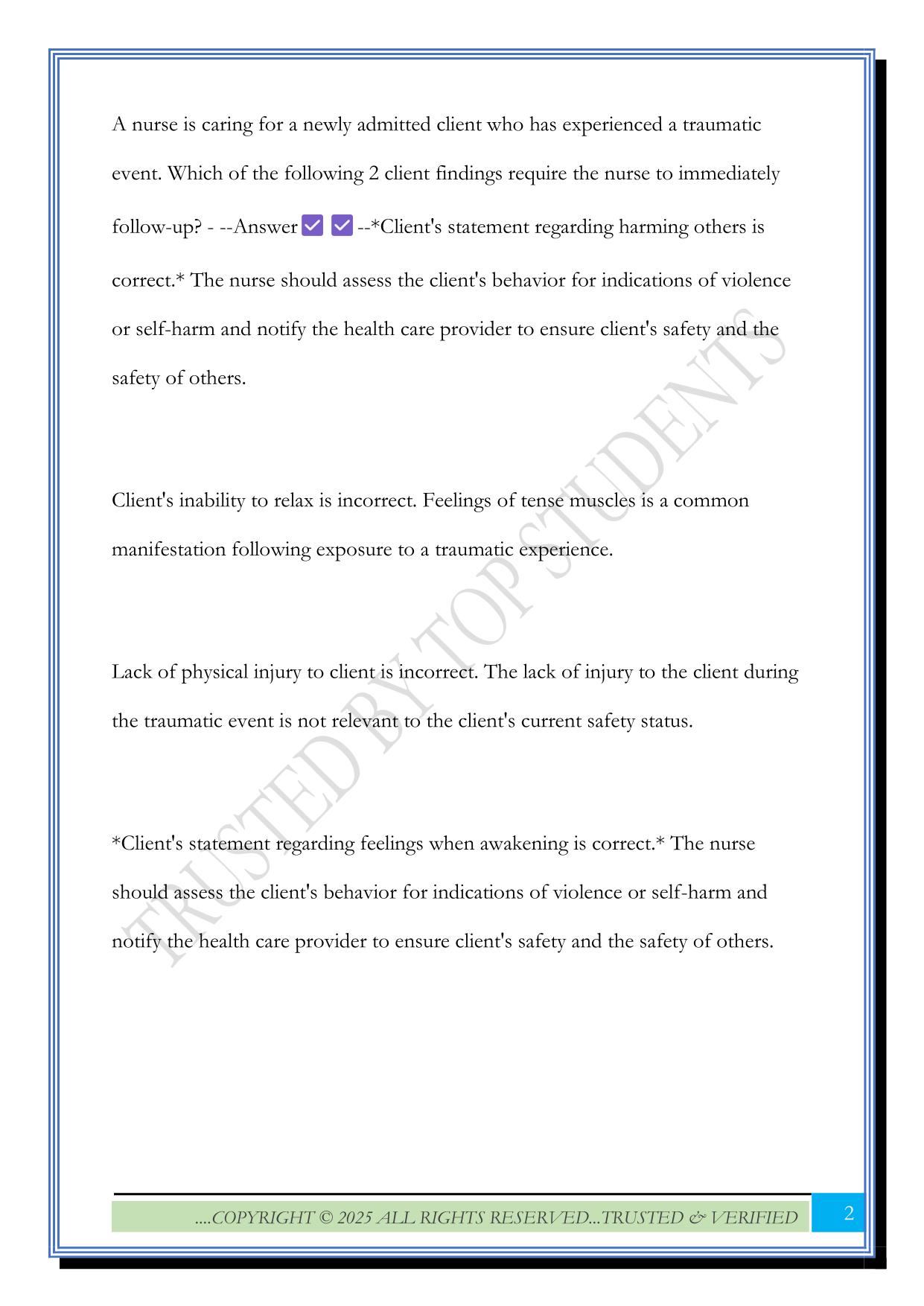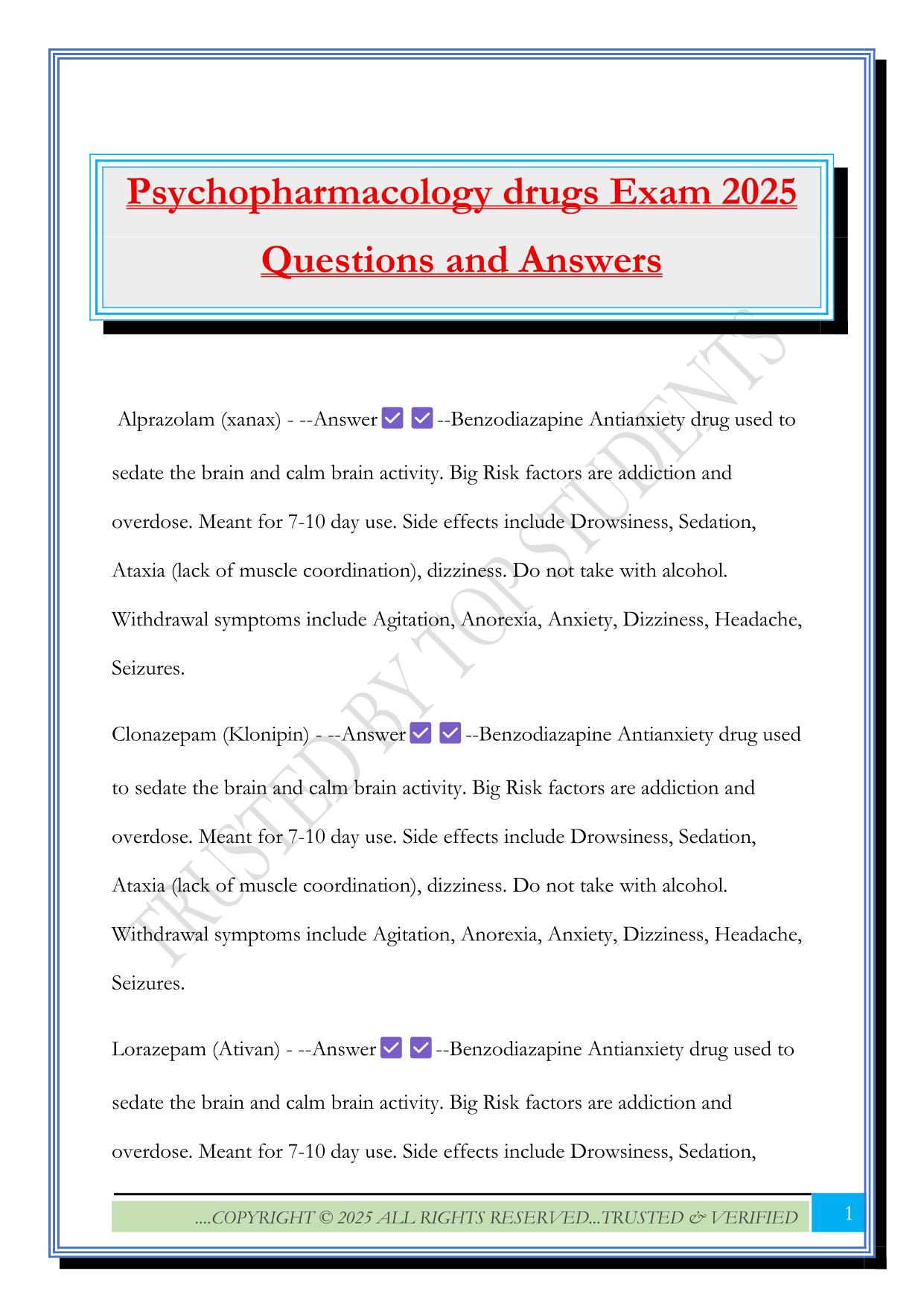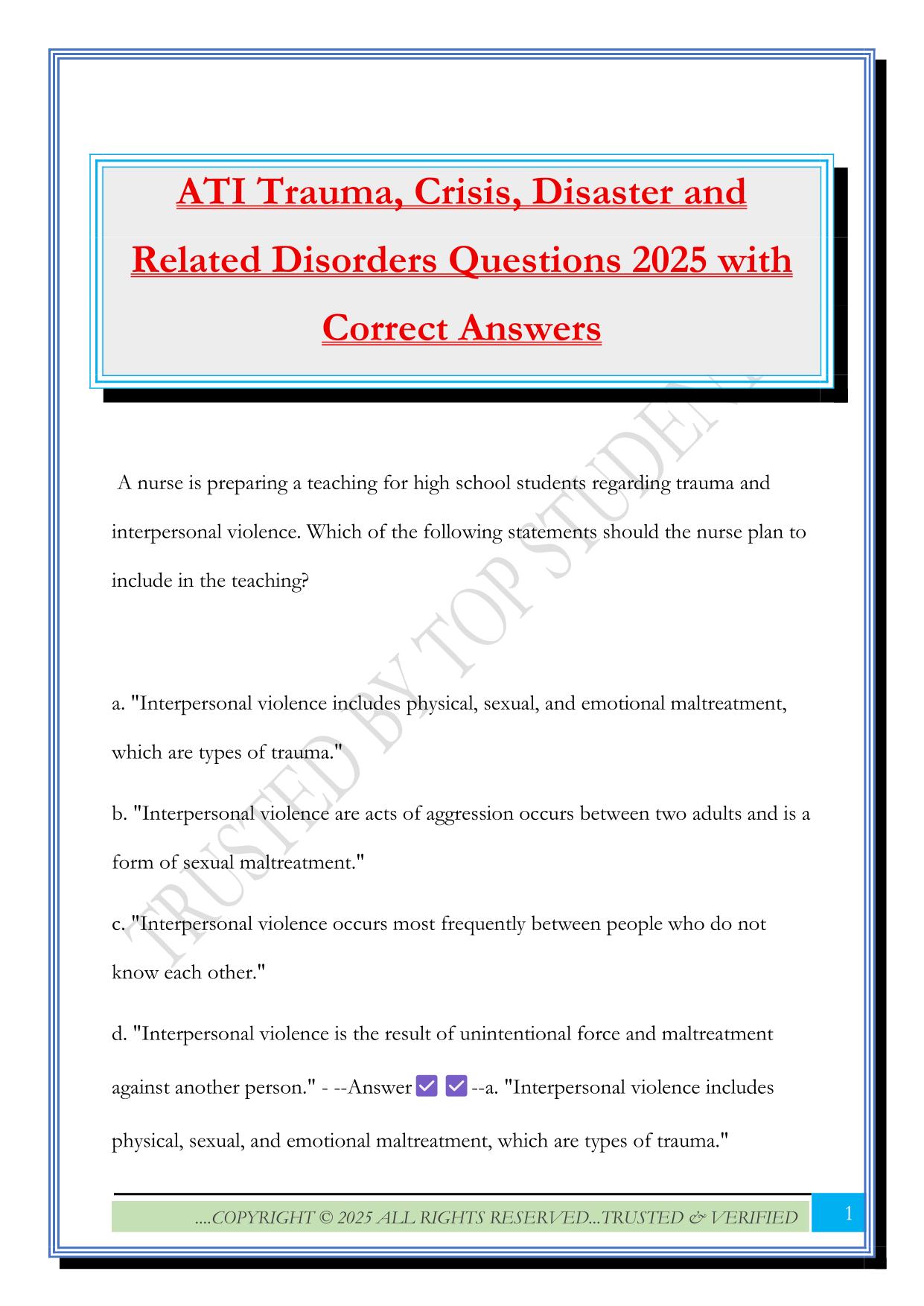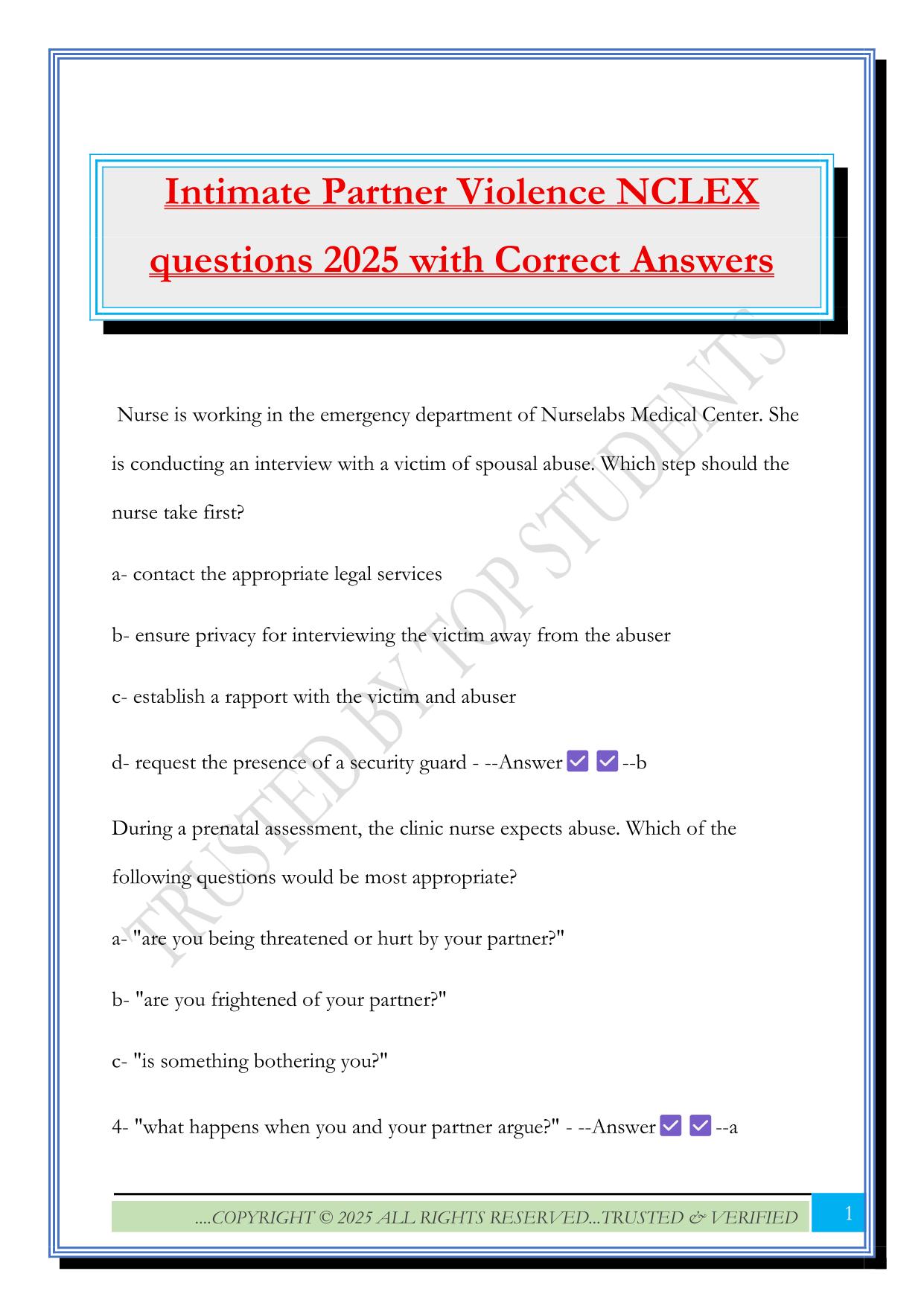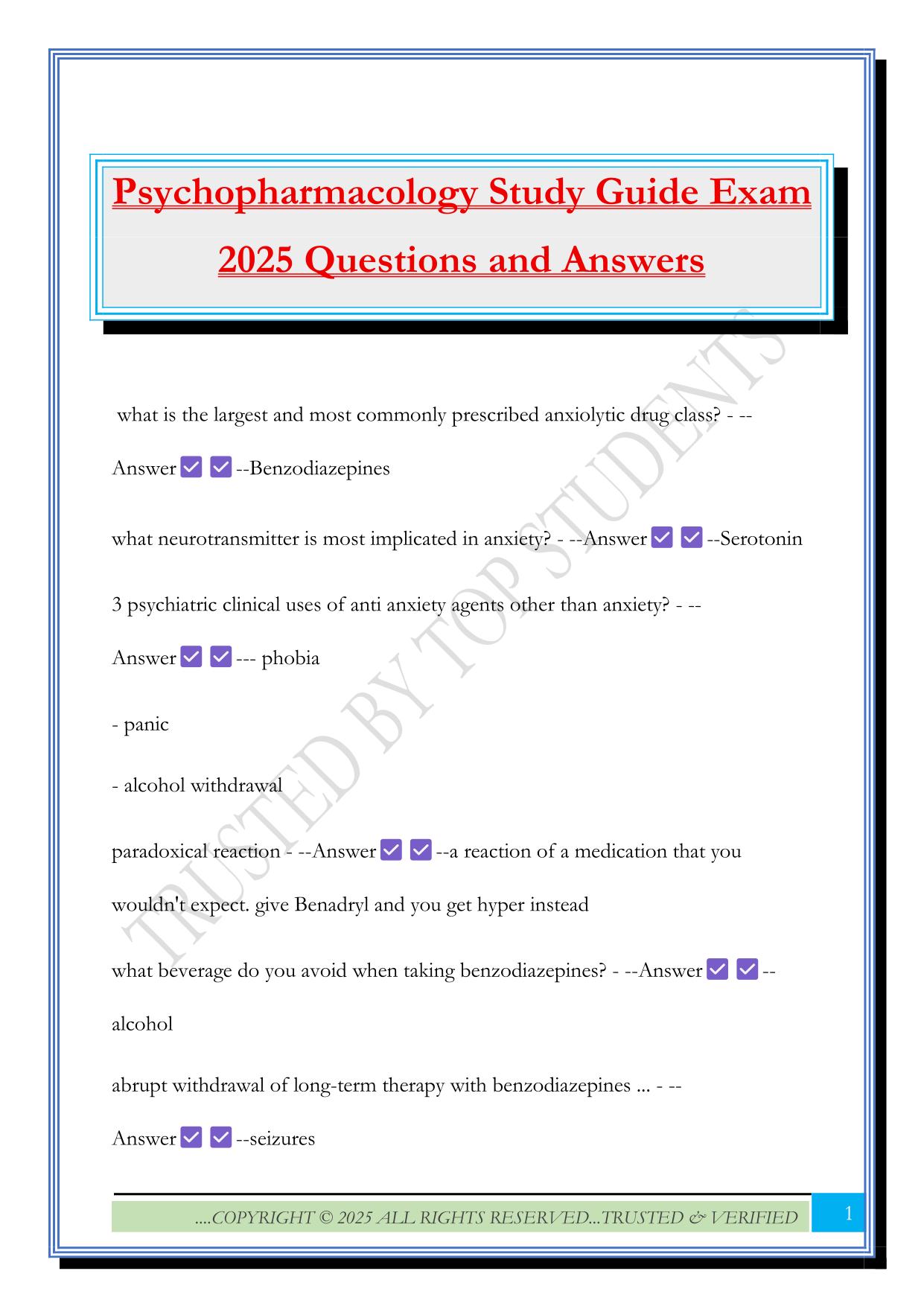Trauma, Crisis, Disaster, and Related Disorder Assessment Exam 2025 Questions and Answers
Trauma, Crisis, Disaster, and Related Disorder Assessment Exam 2025 Questions and Answers
Course:
ATI Trauma, Crisis, Disaster and Related Disorders
Institution:
ATI Trauma, Crisis, Disaster and Related Disorders
Trauma, Crisis, Disaster, and Related Disorder Assessment Exam 2025 Questions and Answers
After purchase, you get:
✅ Instant PDF Download
✅ Verified answer explanations
✅ Refund if not Satisfied
✅ Prepared for 2025/2026 test cycle
Document Information
| Uploaded on: | September 10, 2025 |
| Last updated: | September 10, 2025 |
| Number of pages: | 17 |
| Written in: | 2025/2026 |
| Type: | Exam (elaborations) |
| Contains: | Questions & Answers |
| Tags: | Trauma, Crisis, Disaster, and Related Disorder Assessment Exam 2025 Questions and Answers |
Seller Information

SophiaBennett
Reviews Received
User Reviews (0)
Exam (Elaborations)
$9.50
Bundle Deal! Get all 5 docs for just $14.99
Add to Cart
100% satisfaction guarantee
Refund Upon dissatisfaction
Immediately available after purchase
Available in Both online and PDF
$9.50
| 0 sold
Discover More Resources
Available in a Bundle
Content Preview
Trauma, Crisis, Disaster, and Related Disorder Assessment Exam 2025 Questions and Answers a nurse is caring for a client who recently experienced a traumatic event and is experiencing flashbacks. Which of the following client findings require immediate follow-up by the nurse? Click to highlight the chart entries that require immediate follow-up. To deselect a finding, click on the finding again. - --Answer --When taking action, the nurse should immediately address the statement *"Maybe if you weren't always bothering innocent people and trying to give everyone a ticket, you wouldn't be here"* by the other employee, which indicates implicit bias against law enforcement officers on the part of that employee. Implicit biases in health care increase health inequity and stigma and decrease optimal outcomes for vulnerable populations. Additionally, implicit biases create environments that perpetuate traumatic experiences for at-risk clients by compromising psychological safety, equity, and inclusion. ....COPYRIGHT ©️ 2025 ALL RIGHTS RESERVED...TRUSTED & VERIFIED 1
 US
US

